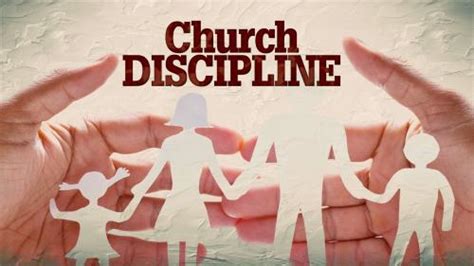How should the discipline of the church be carried out? What ought to characterize the manner of conduct of those who must admonish and warn the members of the flock of God?
Love ought always to govern all our actions with respect to one another, of course, and that includes the exercise of church discipline. Rom. 12:10, 1 Peter 1:22 are samples of general Scriptural instruction on this and all matters of mutual relationship in the church (and without). But in addition to this general characterization of the way in which we may expect discipline to take place Scripture offers also further, more specific instruction for the officers in the church.
We can perhaps best proceed from Acts 20:28 where Paul admonishes the Ephesian elders “to take heed to yourselves and to all the flock, in which the Holy Spirit has made you guardians” (RSV), Note that the elders are to have deep concern not only for the church over which they exercise rule, but also for themselves. This is because they are office-bearers, not kings or tyrants, and because they themselves are “beset with weakness” (Heb. 5:2). Elders must supervise themselves lest they fall into sin, and they must act and speak as men who know their own weakness and sinfulness.
The congregation is called by Paul flock, a word which reminds us of pastoral care. Pastoral care is a loving concern for another’s interests. Thus Paul could continue in Acts 20:28 to say that the elders ought to “feed the church of the Lord which he obtained with his own blood.” Pastoring a church means to deal carefully with the world’s most precious possession, the Lord’s flock purchased at the highest price in all history, the blood of the Lamb.
Church discipline must take place in love; it is concern for and care of the congregation, whose edification and welfare it serves. This necessary feature of the church’s life has to do with both doctrine and life, theory and practice, principle and practice. As can be seen in Acts 20:30, 35 as well as many other New Testament passages, the elders must exercise supervision and disciplinary care with regard to the things which the members of the church believe, since the thinking of the Christian as well as his doing must be in conformity to the Word of God.
What a potent force for good is church discipline, that difficult but necessary Christian activity whereby the whole church and especially its office-bearers do all possible to make all things reflect the truth of the Word of God, whose Son is jealously concerned for the welfare of that church which He has purchased. with His own blood!
J.H.P.

